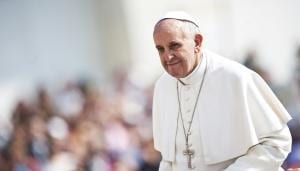
Christians are to be guided by the principle of mercy. “Be merciful, even as your Father is merciful” (Lk. 6:36 RSV). We are told to learn what mercy is: “Go and learn what this means, `I desire mercy, and not sacrifice. For I came not to call the righteous, but sinners” (Matt 9:13 RSV). God made it clear, he does not desire the death of the sinner, but rather, that they should live: “Have I any pleasure in the death of the wicked, says the Lord GOD, and not rather that he should turn from his way and live?” (Ezek. 18:23 RSV). God is, after all, the God of the living and not the dead (cf. Mk. 12:25-27). He desires mercy. He desires the salvation of the sinner. And Christians should be people of mercy, seeking the preservation of life instead of promoting death. They must overcome all malice from within. “Let all bitterness and wrath and anger and clamor and slander be put away from you, with all malice, and be kind to one another, tenderhearted, forgiving one another, as God in Christ forgave you” (Eph. 4:31-32 RSV).
We are to forgive others as we want to be forgiven. We are not to look for excuses to execute revenge, for vengeance is not justice. We are to seek after justice, to seek for its restoration when it has been lost. When we use death and destruction as an answer to death and destruction, we only reinforce injustice, and so find ourselves further away from God and the good which he would have us do. As he desires all should be saved, we, too should likewise seek the salvation of all, preserving as we can the natural life of sinners so that they can have time to do penance and find salvation:
First of all, then, I urge that supplications, prayers, intercessions, and thanksgivings be made for all men, for kings and all who are in high positions, that we may lead a quiet and peaceable life, godly and respectful in every way. This is good, and it is acceptable in the sight of God our Savior, who desires all men to be saved and to come to the knowledge of the truth (1 Tim. 2:1-4 RSV).
This is not easy. It is far easier to judge people than it is to seek their salvation. It is far easier to condemn than it is to show mercy. This is especially true in regards various crimes which make us angry and bitter, crimes which we believe must be avenged, and we think the only way such vengeance can be had is in the death of those who committed those crimes. But no such vengeance restores what has been lost, no such vengeance helps those who seek after it, but it only makes such people themselves more like those they fight against. They begin to accept the way of death instead of the way of mercy and forgiveness, and as they embrace death, so they risk their own spiritual death.
The early martyrs understood that the response to Rome was not an armed insurrection. They transformed the hearts of Rome and conquered Rome without violence, and so they showed the path of mercy was stronger than the path of death. After a few centuries, and many half-conversions, Christians began to embrace the power of the state, and with it, the power of vengeance and the death penalty. Not all of them did. But because Christians were concerned about many other issues, like Christology, they let traditional morality become lost and their moral inclinations become warped and confused.
The witness of Scripture and tradition would not be ignored, and over time, Christians would once again begin to understand the value of life, and with it, the value of mercy, and see how the two are connected together. Vladimir Solovyov in 19th century Russia prophetically started an outcry against the death penalty, and after him, many Christian leaders would continue to promote the path of mercy over the path of death. What they offered was not the denial of tradition, but rather, the realization of it, taking what the earliest Christians said and showed how the earliest traditions countered the various cancerous accretions which had infected Christian thought. In the examination of the death penalty and why it should be rejected, doctrine developed, not by rejecting tradition, but bringing it out, showing where it stood, and how it can and should be used to discuss the problems of the modern age.
Pope Francis, understanding this, explained once again in Fratelli tutti the reasons why Christians must reject the death penalty, giving to the teaching a higher level of doctrinal authority now that it has been placed within an encyclical. Of course, he realizes that many confront him with what they believe the Christian tradition teaches on the death penalty, suggesting that he is contradicting what came before him. He, however, points to them that the condemnation of the death penalty is not only modern, but also something which can be found in tradition itself:
From the earliest centuries of the Church, some were clearly opposed to capital punishment. Lactantius, for example, held that “there ought to be no exception at all; that it is always unlawful to put a man to death.” Pope Nicholas I urged that efforts be made “to free from the punishment of death not only each of the innocent, but all the guilty as well.” During the trial of the murderers of two priests, Saint Augustine asked the judge not to take the life of the assassins with this argument: “We do not object to your depriving these wicked men of the freedom to commit further crimes. Our desire is rather that justice be satisfied without the taking of their lives or the maiming of their bodies in any part. And, at the same time, that by the coercive measures provided by the law, they be turned from their irrational fury to the calmness of men of sound mind, and from their evil deeds to some useful employment. This too is considered a condemnation, but who does not see that, when savage violence is restrained and remedies meant to produce repentance are provided, it should be considered a benefit rather than a mere punitive measure… Do not let the atrocity of their sins feed a desire for vengeance, but desire instead to heal the wounds which those deeds have inflicted on their souls.” [1]
The death penalty is rejected because it is the way of death. We are told not to kill. While some say the command is not to “murder,” the earliest Christian commentaries understood the command went beyond the legal definition of murder and stood against all forms of killing. We reject euthanasia because it is directly killing someone, and so we reject the death penalty because it is also directly killing someone. The two, indeed, are similar, with euthanasia aimed at having a “happy death” for someone who is suffering and ill, while the death penalty is meant to help society which is suffering and ill as a result of some crime which a particular criminal committed. The logic, if examined closely, can be shown to be similar if not the same, and the rejection of the use of death as a way to fix the situation is similar if not the same. Guilt is not expunged by killing the criminal, and indeed, it prevents the criminal from doing penance which could actually help restore justice to the world.
James, therefore, warns us not to kill, realizing that killing is done as a kind of judgment without mercy:
For he who said, “Do not commit adultery,” said also, “Do not kill.” If you do not commit adultery but do kill, you have become a transgressor of the law. So speak and so act as those who are to be judged under the law of liberty. For judgment is without mercy to one who has shown no mercy; yet mercy triumphs over judgment (Jas. 2:11-13 RSV).
Many of the same people who are concerned about sexual sins ignore the fact that if they actively promote the death penalty, they are just as condemned by the moral law (if not more, because the gravity of sin associated with death can be far greater than that of sexual sins). We are to be merciful, and such mercy will triumph, and help bring about justice in a way the destruction of criminals cannot. Truth, justice and mercy all need to be brought together: being judgmental ignores mercy (and often the truth); when we make righteous judgment we do so with mercy so that we can restore justice, not undermine it further. Quoting himself from his Apostolic Journey to Columbia, Pope Francis reiterates this:
“Truth, in fact, is an inseparable companion of justice and mercy. All three together are essential to building peace; each, moreover, prevents the other from being altered… Truth should not lead to revenge, but rather to reconciliation and forgiveness. Truth means telling families torn apart by pain what happened to their missing relatives. Truth means confessing what happened to minors recruited by cruel and violent people. Truth means recognizing the pain of women who are victims of violence and abuse… Every act of violence committed against a human being is a wound in humanity’s flesh; every violent death diminishes us as people… Violence leads to more violence, hatred to more hatred, death to more death. We must break this cycle which seems inescapable.”[2]
Justice, of course, means crimes should go punished, and secular authorities are the ones tasked to work for justice:
In the New Testament, while individuals are asked not to take justice into their own hands (cf. Rom 12:17.19), there is also a recognition of the need for authorities to impose penalties on evildoers (cf. Rom 13:4; 1 Pet 2:14). Indeed, “civic life, structured around an organized community, needs rules of coexistence, the wilful violation of which demands appropriate redress”. This means that legitimate public authority can and must “inflict punishments according to the seriousness of the crimes” and that judicial power be guaranteed a “necessary independence in the realm of law”. [3]
As Pope Francis indicates, what particular authorities do can and should be based upon the crimes committed. That is, they should be proportional and seek for the true restoration of justice, and not petty vengeance. Secular authorities can be judged for going beyond what is acceptable if they promote injustice. When punishing criminals, they can and often go beyond the boundaries of justice, and if and when they do, they are to be denounced. Torturing someone for petty theft is not justice. And killing anyone is not justice, because life is precious, and purposefully eliminating the life of someone else is far from just, as Pope Francis reiterates:
Let us keep in mind that “not even a murderer loses his personal dignity, and God himself pledges to guarantee this”. The firm rejection of the death penalty shows to what extent it is possible to recognize the inalienable dignity of every human being and to accept that he or she has a place in this universe. If I do not deny that dignity to the worst of criminals, I will not deny it to anyone. I will give everyone the possibility of sharing this planet with me, despite all our differences. [4]
The greatest example of this in Scripture is with the story of Cain, on whom God placed a special sign, telling others that they must not kill him as punishment for what he did with his brother, Abel. God guaranteed Cain’s life. Likewise, then, throughout Scripture, we find God working to overcome the desire for blood vengeance, such as can be found in the establishment of sanctuary cities in Israel. God consistently tells us he desires life and mercy, not death and vengeance. We have lost sight of this, but now, having come to realize the value and dignity of life, we must not lose sight of it again; we must work for the elimination of the death penalty:
There is yet another way to eliminate others, one aimed not at countries but at individuals. It is the death penalty. Saint John Paul II stated clearly and firmly that the death penalty is inadequate from a moral standpoint and no longer necessary from that of penal justice. There can be no stepping back from this position. Today we state clearly that “the death penalty is inadmissible” and the Church is firmly committed to calling for its abolition worldwide. [5]
Pope Francis, following Pope Benedict XVI, Pope St. John Paul II, and the depth of the Christian tradition, calls us once again to follow the God who is love, the God who desires all that might be saved and that none should perish. We are called to follow God in acts of mercy. Yes, we must speak the truth and call out injustice, but we must not commit injustice ourselves as a result. We must not let the cycle of sin continue, but rather, we must embrace true justice, and with it, promote mercy which seeks to restore sinners to justice instead of eliminate them. For it is evil to seek to destroy what is left of the good within them.
[1] Pope Francis, Fratelli tutti. Vatican translation. ¶ 265.
[2] Pope Francis, Fratelli tutti, ¶ 227. Quoting Address at the National Reconciliation Encunter, Villavicencio, Colombia (8 September 2017): AAS 109 (2017), 1063-1064, 1066.
[3] Pope Francis, Fratelli tutti, ¶ 264.
[4] Pope Francis, Fratelli tutti. Vatican translation, 269.
[5] Pope Francis, Fratelli tutti. Vatican translation, 263.
Stay in touch! Like A Little Bit of Nothing on Facebook.
If you liked what you read, please consider sharing it with your friends and family!













